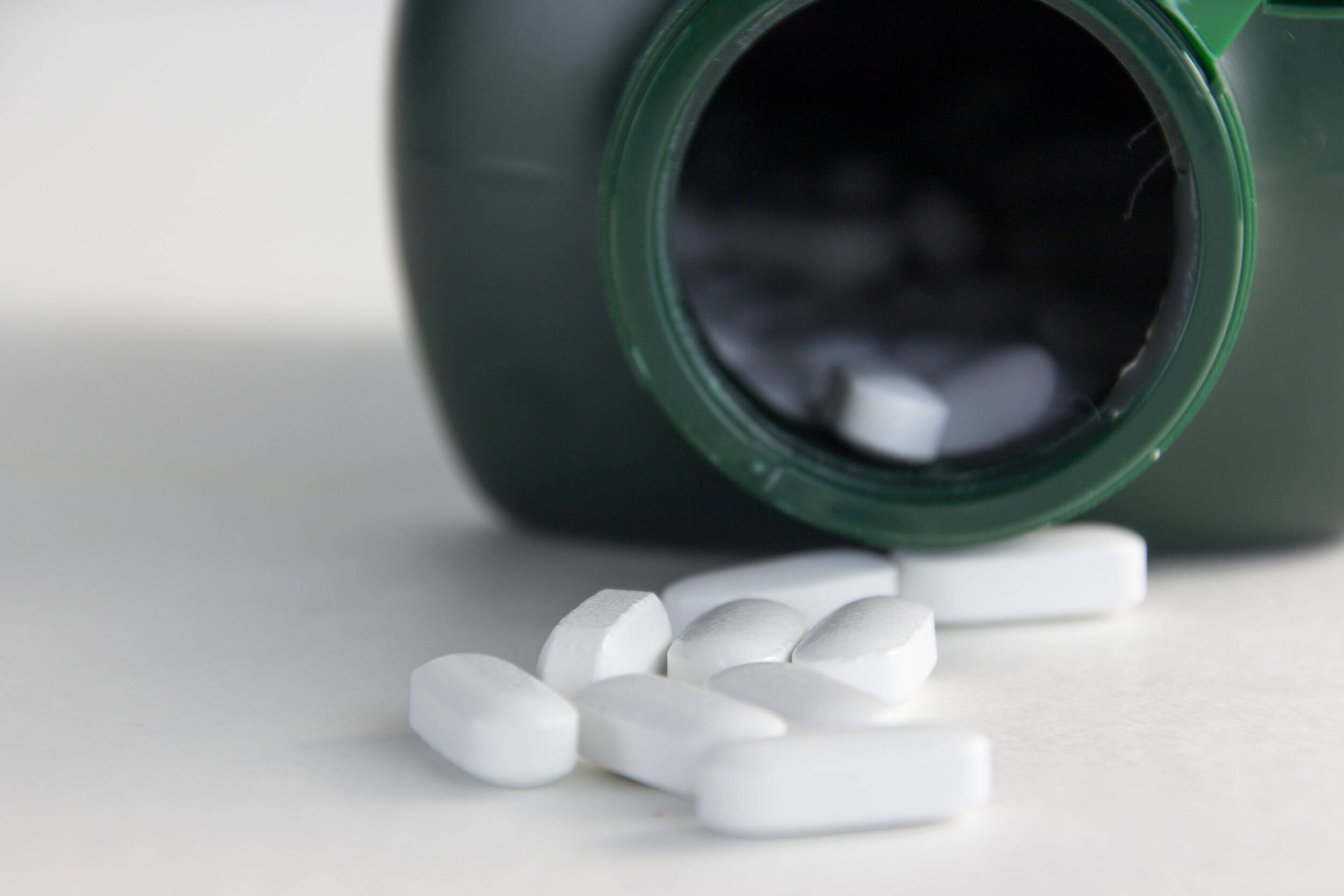Treatment for Hypothyroidism

Hypothyroidism is one of the most common thyroid disorders. It prevents the gland from producing enough thyroid hormones, which in turn produces various symptoms ranging from dry skin, hoarseness, slow heart rate, and hair loss to weight gain. However, discovering a good treatment for hypothyroidism helps to reverse them.
In effect, it helps to reverse symptoms and restore a person’s quality of life. However, it doesn’t cure hypothyroidism as such, as experts from the American Thyroid Association explain. Therefore, patients generally must take medication (almost always for life) to keep the disease under control.
Let’s take a closer look to understand why treatment is effective in controlling symptoms but not to cure the disease, and why it has to be for life in most cases, etc.
Treatment for hypothyroidism
Levothyroxine (T4)

Regardless of the cause, hypothyroidism makes the thyroid unable to release adequate levels of the hormones T3 and T4, which are necessary for the body to function properly.
The lack of these hormones can slow down the metabolism and cause various symptoms. Therefore, pharmacological treatment is necessary. This is adjusted according to the predominant medical condition of the person.
Therefore, levothyroxine (synthetic T4) is one of the medications that can be included in the treatment for hypothyroidism. This is because it helps replace the thyroid hormone that the body makes. In some cases, levothyroxine can be combined with liothyronine.
Drug treatment for hypothyroidism begins with low doses to reduce the risk of side effects. Adjustments are made progressively. The goal is to reach and keep your TSH level in the normal range.
Dried thyroid extract
The MSD Manual states that “another form is desiccated (dried) thyroid hormone, which is obtained from the thyroid glands of animals, although it is no longer used very often… it is less satisfactory than synthetic T4, because the content of thyroid hormones present in each tablet is variable “.
Lifestyle

While focusing on pharmacological measures, treatment for hypothyroidism also includes some lifestyle changes. It focuses on increasing the person’s well-being, while reinforcing the effectiveness of the treatment and improving health in an integral way.
Recommendations around lifestyle are personalized with your nutricionist or doctor. There’s no diet for hypothyroidism as such, nor is there a set guideline for exercise.
As explained in Today’s Dietitian magazine, several nutritional factors play a role in optimizing thyroid function. Nutritional deficiencies can trigger or exacerbate some symptoms, so it’s important to treat them properly, and this is also achieved through diet.
Although you can consult your nutritionist or dietitian in this regard, the ideal thing is to first consult with the doctor about the type of diet that should be taken to obtain benefits. This is, in part, because some foods can interact with certain medications and, consequently, modify their mode of action.
As Mayo Clinic experts explain, some medications such as antacids containing aluminum hydroxide or supplements (calcium only, iron only, or multivitamins with iron) and even some foods (nuts, soybeans and derivatives) can affect the absorption of levothyroxine.
They also recommend consulting with your doctor about your diet if it’s normally high in fiber.
Medical checks are vital
As indicated in several pieces of research, it’s recommended to combine a healthy diet with regular exercise, as directed by the doctor. This will improve the quality of life significantly, because, in addition to contributing to the functioning of the thyroid, it will help you rest better, have more energy, and manage emotional tension better.
If you have any questions about the treatment, or the changes that should or shouldn’t be made in your way of life, the most sensible thing is to go to the doctor. Trying to take action on your own is not recommended, as it could backfire.
In short, avoiding extremes, consulting with your doctor if you have any questions or concerns, and following the indications regarding prescriptions is what will help to safeguard your good health.
Hypothyroidism is one of the most common thyroid disorders. It prevents the gland from producing enough thyroid hormones, which in turn produces various symptoms ranging from dry skin, hoarseness, slow heart rate, and hair loss to weight gain. However, discovering a good treatment for hypothyroidism helps to reverse them.
In effect, it helps to reverse symptoms and restore a person’s quality of life. However, it doesn’t cure hypothyroidism as such, as experts from the American Thyroid Association explain. Therefore, patients generally must take medication (almost always for life) to keep the disease under control.
Let’s take a closer look to understand why treatment is effective in controlling symptoms but not to cure the disease, and why it has to be for life in most cases, etc.
Treatment for hypothyroidism
Levothyroxine (T4)

Regardless of the cause, hypothyroidism makes the thyroid unable to release adequate levels of the hormones T3 and T4, which are necessary for the body to function properly.
The lack of these hormones can slow down the metabolism and cause various symptoms. Therefore, pharmacological treatment is necessary. This is adjusted according to the predominant medical condition of the person.
Therefore, levothyroxine (synthetic T4) is one of the medications that can be included in the treatment for hypothyroidism. This is because it helps replace the thyroid hormone that the body makes. In some cases, levothyroxine can be combined with liothyronine.
Drug treatment for hypothyroidism begins with low doses to reduce the risk of side effects. Adjustments are made progressively. The goal is to reach and keep your TSH level in the normal range.
Dried thyroid extract
The MSD Manual states that “another form is desiccated (dried) thyroid hormone, which is obtained from the thyroid glands of animals, although it is no longer used very often… it is less satisfactory than synthetic T4, because the content of thyroid hormones present in each tablet is variable “.
Lifestyle

While focusing on pharmacological measures, treatment for hypothyroidism also includes some lifestyle changes. It focuses on increasing the person’s well-being, while reinforcing the effectiveness of the treatment and improving health in an integral way.
Recommendations around lifestyle are personalized with your nutricionist or doctor. There’s no diet for hypothyroidism as such, nor is there a set guideline for exercise.
As explained in Today’s Dietitian magazine, several nutritional factors play a role in optimizing thyroid function. Nutritional deficiencies can trigger or exacerbate some symptoms, so it’s important to treat them properly, and this is also achieved through diet.
Although you can consult your nutritionist or dietitian in this regard, the ideal thing is to first consult with the doctor about the type of diet that should be taken to obtain benefits. This is, in part, because some foods can interact with certain medications and, consequently, modify their mode of action.
As Mayo Clinic experts explain, some medications such as antacids containing aluminum hydroxide or supplements (calcium only, iron only, or multivitamins with iron) and even some foods (nuts, soybeans and derivatives) can affect the absorption of levothyroxine.
They also recommend consulting with your doctor about your diet if it’s normally high in fiber.
Medical checks are vital
As indicated in several pieces of research, it’s recommended to combine a healthy diet with regular exercise, as directed by the doctor. This will improve the quality of life significantly, because, in addition to contributing to the functioning of the thyroid, it will help you rest better, have more energy, and manage emotional tension better.
If you have any questions about the treatment, or the changes that should or shouldn’t be made in your way of life, the most sensible thing is to go to the doctor. Trying to take action on your own is not recommended, as it could backfire.
In short, avoiding extremes, consulting with your doctor if you have any questions or concerns, and following the indications regarding prescriptions is what will help to safeguard your good health.
- Aguilar Chasipanta Walter Geovanny, Barquin Zambrano Christian Rogelio, Washington Jordán Sánchez Jorge, Espinoza Álvarez Edlita Ivonne, Bayas Cano Ana Gabriela, Vaca García Mario Rene. Efectos del deporte sobre la glándula tiroides. Rev Cubana Invest Bioméd [Internet]. 2017 Sep [citado 2021 Jun 16] ; 36( 3 ). Disponible en: http://scielo.sld.cu/scielo.php?script=sci_arttext&pid=S0864-03002017000300013&lng=es.
-
“Dieta Para Tratar El Hipotiroidismo: ¿Pueden Ciertos Alimentos Aumentar La Función Tiroidea? – Mayo Clinic.” n.d. Accessed June 16, 2021. https://www.mayoclinic.org/es-es/diseases-conditions/hypothyroidism/expert-answers/hypothyroidism-diet/faq-20058554.
-
Harris, Cheryl. n.d. “Thyroid Disease and Diet-Nutrition Plays a Part in Maintaining Thyroid Health.” Today’s Dietitian. Accessed June 16, 2021. https://www.todaysdietitian.com/pdf/courses/HarrisThyroidDiet.pdf.
-
“Hipotiroidismo – Diagnóstico y Tratamiento – Mayo Clinic.” n.d. Accessed June 16, 2021. https://www.mayoclinic.org/es-es/diseases-conditions/hypothyroidism/diagnosis-treatment/drc-20350289.
-
“Hipotiroidismo | American Thyroid Association.” n.d. Accessed June 15, 2021. https://www.thyroid.org/hipotiroidismo/.
-
Hershman, Jerome M. n.d. “Hipotiroidismo – Trastornos Hormonales y Metabólicos .” Manual MSD Versión Para Público General. Accessed June 15, 2021. https://www.msdmanuals.com/es/hogar/trastornos-hormonales-y-metabólicos/trastornos-de-la-glándula-tiroidea/hipotiroidismo.
-
“Hipotiroidismo | American Thyroid Association.” n.d. Accessed June 15, 2021. https://www.thyroid.org/hipotiroidismo/.
Este texto se ofrece únicamente con propósitos informativos y no reemplaza la consulta con un profesional. Ante dudas, consulta a tu especialista.







